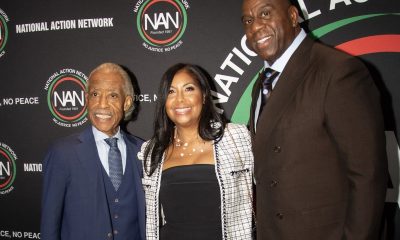Art & Style
Globetrotter
The Astonishing Life Story of Ayaan Hirsi Ali
BOOK REVIEW: By CHRISTOPHER WINDHAM
Ayaan Hirsi Ali is every woman.
She survived brutal beatings and female mutilation from relatives in civil war-torn Somalia. As an immigrant in Saudi Arabia, Ali cooked and cleaned for her extended family, while becoming an even more devout follower of Islam. Living in the predominately Christian Kenya, Ali learned Swahili, while resisting the secular temptation that was prevalent in the poor African nation. Later in Holland, Ali earned a college degree in political science and used her position in the Dutch Parliament to speak out against the oppression of Muslim women.
Before perusing Infidel, I expected to read an interesting account of Ali’s complex life. I didn’t realize, however, that I’d be gaining a first person history lesson on these four unstable, yet culturally-rich countries. Ali delivers memorable visuals through her descriptive rehashing of her life’s events, such as the painful excision she endured as a child, an acceptable practice in Islam designed to keep women “pure” for marriage.
In Infidel, Ali’s childhood anecdotes show the foundation that later led her to help several distraught families cross into Kenya from Somalia during a bloody 1990 coup d’état. Ali’s upbringing and family history also played a role in her journey and agenda in the Dutch parliament.
Her father, Hirsi Magan, was a member of the legendary Osman Mahamud clan in Somalia. He also studied at Columbia University and once ran for parliament in Somalia. “My father was bold, learned, popular and born to rule,” Ali wrote. Magan eventually escaped jail where he was a political prisoner of Soviet-backed Somali dictator Siad Barre, who ruled the country from 1969 to 1991. Ali’s father was a leader in the political movement to overturn Barre’s rule called the Somali Salvation Democratic Front.
In the spirit of her father’s push for reform in Somalia, Ali wrote about her motives for seeking a position in the Dutch Parliament. “First, I wanted Holland to wake up and stop tolerating the oppression of Muslims in its midst,” she wrote. Ali also said she wanted to spark a debate among Muslims about domestic violence and other aspects of Islam that had gone unquestioned. Such a discussion would help Ali achieve another parliament goal: to raise awareness among Muslim women about “just how bad, and how unacceptable, their suffering was,” she wrote.












